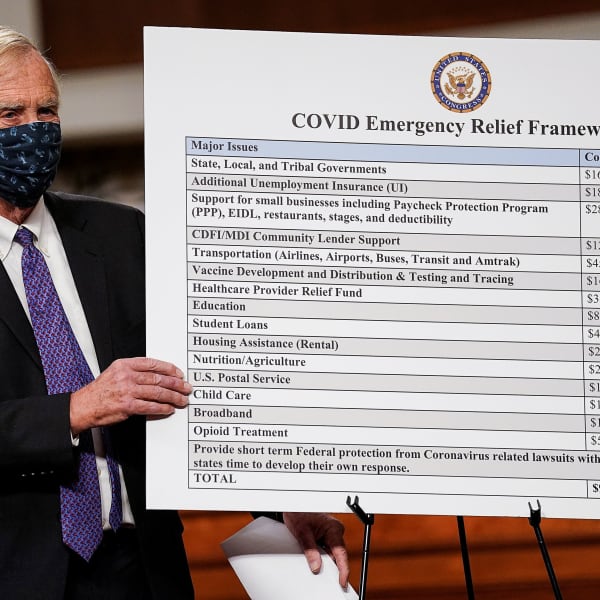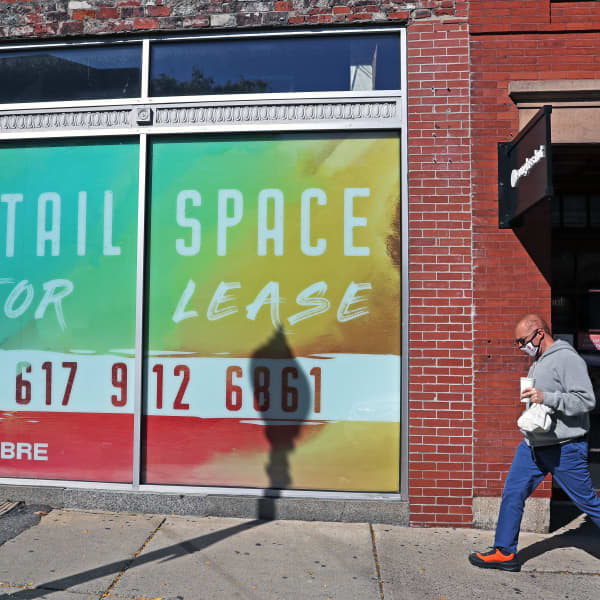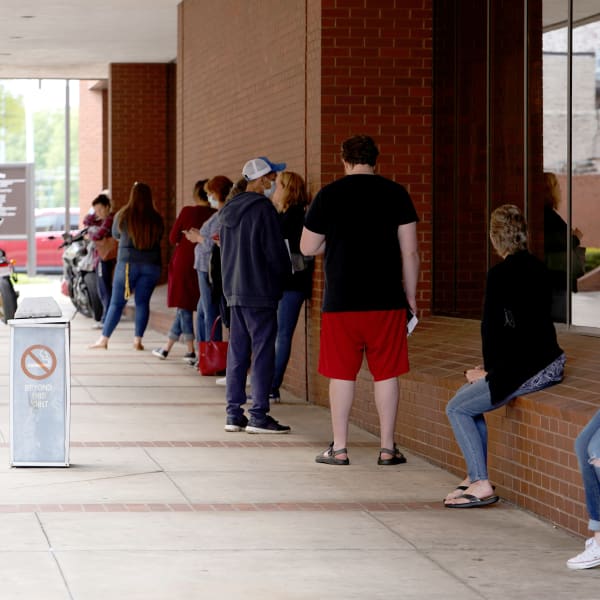There is no panic on Main Street, but confidence is dropping, according to the latest CNBC/SurveyMonkey Small Business Survey, released Monday.
At a time of growing concerns about a more fragile U.S. economy — with increased stock market volatility, a lingering trade war with China and Federal Reserve policy adding layers of uncertainty — small-business optimism across the country has come down from a record high.
The Small Business Confidence Index declined by 1 point from the fourth quarter 2018 level of 59, and it is now four points below its Q3 2018 all-time high of 62. There has been a slight decline in business owners who describe business conditions as good and who plan to hire more full-time staff in the next year. A narrow majority of business owners (53 percent) expect a recession within the next 12 months, according to the survey, mirroring a growing sense of economic anxiety from Wall Street and among individual Americans.
The CNBC/SurveyMonkey Small Business Survey, conducted from Jan. 28–Feb. 4, polled more than 2,200 small-business owners.
The longer-term trend is more positive
With two full years of small-business survey data now recorded by CNBC and SurveyMonkey, the longer-term picture shows that confidence remains much higher than it was in 2017. Business owners are becoming more cautious on major decisions but are not in retreat. The percentage of business owners who describe conditions as bad, who expect to decrease staff and who forecast lower revenue all remain at lower levels than they were in the inaugural survey during the second quarter of 2017.
"At this point it's just a downtick in confidence," said Jon Cohen, chief research officer at SurveyMonkey. "The consistent gains we saw throughout 2018 have clearly abated, but we'll have to wait and see what subsequent quarters show. It's too early to call the declines a trend at this point," Cohen said.
In Q2 2017 the percentage of small-business owners who described conditions as good was 38 percent, while 51 percent described conditions as "middling." This quarter 52 percent of business owners described conditions as good — lower than the 58 percent record in the third quarter last year but still much higher than two years ago. Forty percent of entrepreneurs describe current conditions as "middling."
The percentage of business owners who describe conditions as "bad" or who forecast lower revenues remain in a distinct minority.
Small business confidence trends
| Response | Q1 2019 | Q3 2018 | Q2 2017 |
|---|---|---|---|
| Conditions good | 52% | 58% | 38% |
| Conditions middling | 40% | 34% | 51% |
| Conditions bad | 7% | 8% | 11% |
| Revenue will increase | 57% | 62% | 55% |
| Revenue will stay the same | 35% | 31% | 36% |
| Revenue will decrease | 8% | 7% | 9% |
| Hiring will increase | 28% | 33% | 27% |
| Hiring will stay the same | 64% | 59% | 63% |
| Hiring will decrease | 7% | 7% | 8% |
Source: CNBC | SurveyMonkey Small Business Survey, Q1 2019
"While revenue expectations and hiring expectations have held steady, fears of a recession may affect how business owners think about those decisions going forward. It could point to more volatility in the numbers than we've seen to date," Cohen said.
The survey also revealed the waning impact of the Trump tax cuts as part of business optimism. The Tax Cuts and Jobs Act of 2017 passed in December of that year. In the first quarter 2018, 46 percent of small-business owners said government tax policy would have a positive effect on their business over the next year. That is now down to 31 percent, tying the lowest level recorded for that response in the two years of the survey.
Trump policy as an issue for small-business owners
The survey was conducted shortly after the government shutdown over President Donald Trump's immigration policy and demands for a border wall ended. The shutdown had significant effects on businesses — especially in states like Alabama, where there are large consumer bases working for NASA, the U.S. Army and a dozen other federal agencies. It also led to sales slowdowns for one-third of small-business owners, as well as management frustrations for owners across the country.
However, only one-fifth of small-business owners nationwide said the shutdown was a major concern for their business, while 29 percent described it as a minor concern. Exactly half said it was not a concern. Non-small business owners — whose responses also are included in the survey — were much more likely to think small businesses would be hurt by a shutdown.
There is a deadline end of day Friday for a border deal to remove the threat of another shutdown. No agreement has been reached yet on Capitol Hill.
The small-business survey audience — which skews conservative — seemed to fall in line with Trump, as immigration was a major news story at the time the survey was conducted. Immigration was cited as the issue that "matters most to you right now" by the largest percentage of respondents (27 percent) in the first-quarter survey, surpassing jobs and the economy. It was cited as the No. 1 issue by 42 percent of Republican small-business owners — up from 29 percent in the fourth quarter last year. There also was a 10 percent jump, to 19 percent, among Independents citing immigration as No. 1. Few small-business owners who identify as Democrats listed immigration first among issues (6 percent).
Last week the White House and Trump indicated that no major meeting with Chinese President Xi was planned for before the next round of tariffs on China are scheduled to go into effect in March. That hit the stock market, but the majority of small-business owners don't expect trade policy to have a negative effect on their business in the next year (56 percent). The percentage of small-business owners who say trade policy will have a negative effect has been elevated over the past four quarters of the survey as the trade spat with China has intensified. Still, only one-quarter (25 percent) expect trade to be negative for their business in the next year.
Overall approval ratings for Trump have been consistent in this conservative-leaning population, with 56 percent of small-business owners — 90 percent of Republicans, 36 percent of Independents and 8 percent of Democrats — approving of his handling of the presidency in the first quarter, versus 58 percent when the survey began in Q2 2017.
"Confidence levels are off their peak from 2018, and recent market volatility and political uncertainty may have made them more fragile," said Laura Wronski, senior research scientist at SurveyMonkey. "But overall, confidence among both consumers and small-business owners remains relatively high."
The CNBC/SurveyMonkey Small Business Survey is conducted quarterly using SurveyMonkey's online platform and based on its survey methodology.





